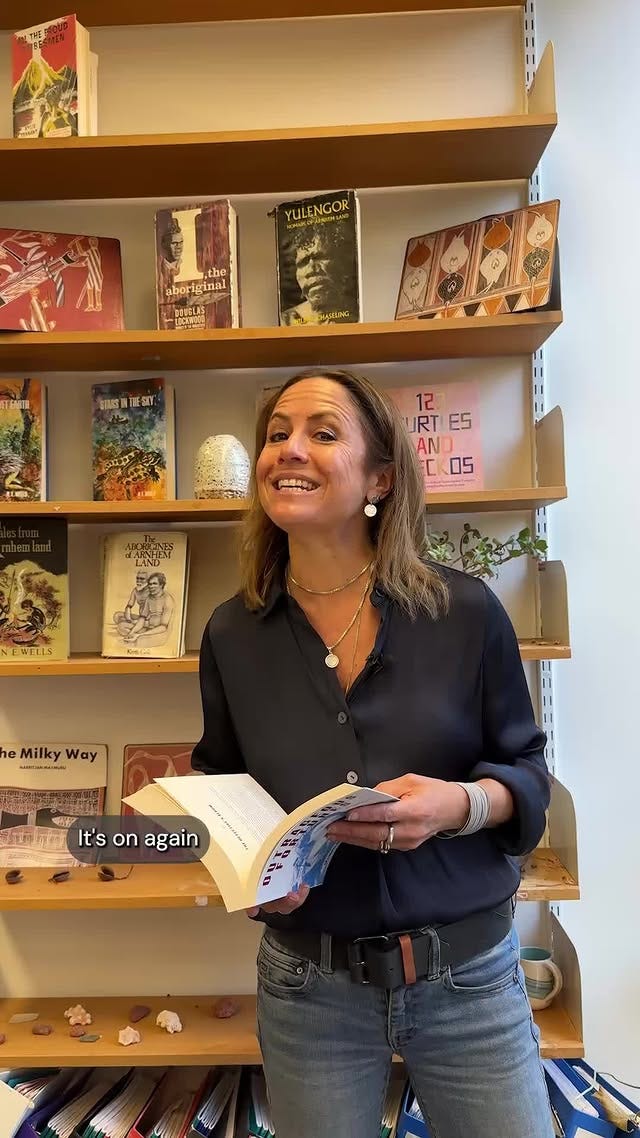Authors withdraw from Bendigo Writers Festival over anti-Palestinian 'censorship'
Festival organisers sought compliance with controversial definition of antisemitism that includes criticism of Israel
More than half a dozen prominent authors and members of the Bendigo Writers Festival's curatorial team are pulling out of the event after being told to sign a code of conduct that would inhibit criticism of Israel.
Author and academic Randa Abdel-Fattah, poet and Overland editor Evelyn Araluen, novelist Claire G. Coleman, journalist Jess Hill, author Kate Mildenhall, journalist Paul Daley and poet and activist Jeanine Leane have withdrawn from the Festival lineup over concerns that the Festival's code of conduct would prohibit discussion of Israel's genocide in Gaza or expressions of solidarity with Palestinians.
Professor Clare Wright, who was scheduled to curate the Festival's La Trobe Presents sessions, has also resigned from the Festival's curatorial team, citing similar concerns to the speakers who have pulled out.
The Festival's code of conduct, which was sent out to participants yesterday, instructs speakers to "avoid language or topics that could be considered inflammatory, divisive, or disrespectful". It also asks speakers to avoid public comment or social media posts "that could harm the Festival’s reputation or cause public concern", and binds them to La Trobe University's anti-racism policy that controversially lists criticism of Israel as an example of antisemitism.
In a letter to City of Greater Bendigo venues and events manager Julie Amos yesterday, Abdel-Fattah said she "cannot take part in any festival that asks me to endorse a framework that demands my self-censorship".
"At a time when journalists are being permanently silenced by Israel's genocidal forces, it is incomprehensible that a writers' festival should also seek to silence Palestinian voices," Abdel-Fattah said in the letter.
A representative for Araluen said in a letter to Amos that the La Trobe provision in the Festival's Code of Conduct "directly infringes on Evelyn’s freedom of speech, her academic speech, her cultural duty as a First Nations woman and her obligation as someone with a large platform to speak out against oppression, which includes speaking out against Israel’s ongoing UN-defined genocide of the Palestinian people".
The Festival, the City of Greater Bendigo and La Trobe University have been contacted for comment.
The Festival, which begins tomorrow, sent its slate of planned speakers and hosts a Code of Conduct yesterday requiring that they show "compliance with the principles espoused in La Trobe [University's] Anti-Racism Plan, including the definitions of antisemitism and Islamophobia in the Plan".
La Trobe University, the festival's presenting partner, incorporated the controversial Universities Australia (UA) working definition of antisemitism into its anti-racism policy in March. The working definition has been the subject of heated controversy since its adoption by Australia's 39 university vice-chancellors in February.
Students, academics and activists have accused vice-chancellors of using the working definition to suppress expressions of pro-Palestinian solidarity on campus, while the National Tertiary Education Union, Palestinian, Jewish and civil liberties groups have criticised the definition for conflating antisemitism with criticism of Israel.
The working definition states that “criticism of Israel can be antisemitic… when it calls for the elimination of the State of Israel” and asserts that “for most, but not all Jewish Australians, Zionism is a core part of their Jewish identity”.
“Substituting the word ‘Zionist’ for ‘Jew’ does not eliminate the possibility of speech being antisemitic,” the working definition states.
Zionism is an ethnocentric nationalist ideology formed in the late 19th century with the expressed aim of creating a Jewish homeland in Palestine, and underpins the foundations of Israel.
In her letter of withdrawal, Abdel-Fattah told the Festival that La Trobe's anti-racism policy "directly infringes on my right to speak as a Palestinian, as well as my freedom of speech and academic freedom".
"This [anti-racism] plan not only fails to acknowledge anti-Palestinian racism, it adopts the UA definition of antisemitism – one that conflates anti-Zionism with antisemitism, censoring public debate on Israel's violations of international law, the colonial and racist foundations of the Zionist project, and the realities of decolonisation and Palestinian liberation," Abdel Fattah said.
Writing to Amos and La Trobe vice-chancellor Professor Theo Farrell this afternoon, Human Rights Law Centre legal director Sarah Schwartz sought "urgent clarification on whether the Festival will interpret the Code of Conduct as prohibiting otherwise lawful speech".
"We have been approached by several festival participants who are concerned that the Code of Conduct and La Trobe University antisemitism definition will prevent critical discussions at panels and events on matters related to Palestinian liberation and human rights, First Nations land rights, Indigenous sovereignty, migrant diasporas, Donald Trump’s presidency, feminism and a variety of other topics which may be considered 'divisive' or non-'sensitive' to those who hold alternative political views," Schwartz said in the letter.
The Festival webpages of all four authors and their events, as well as a webpage featuring Wright on the Festival's curatorial team, were still live at the time of publication.





As an Overland Board member, I support our staff in speaking up against genocide and against the authoritarian policing of writers and artists.
So two days before the opening they put the gags on.